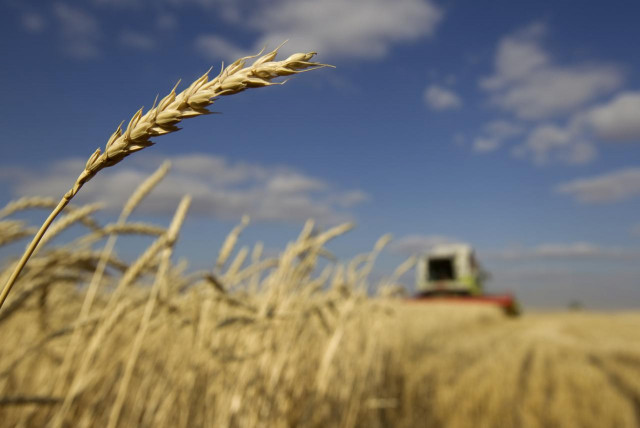'Centre deaf to Punjab’s wheat difficulties'
Say federal government has offered no assistance while asking the province to do more to control prices

A Reuters file image.
“For the past few years, it seems Passco dedicated solely to the wheat needs of Sindh, Khyber-Pakhtunkhwa and Balochistan,” complained one Punjab government official. “Punjab has never received any supply from Passco during times of difficulty even though it gets 70 per cent of its wheat from the province,” he complained.
Punjab officials said the province was asked to sell 900,000 tonnes of wheat from official stocks to flour mills in a recent meeting chaired by Prime Minister’s Finance Advisor Abdul Hafeez Sheikh.
“At the time, federal officials assured that the centre would assist Punjab in arranging the sale but in the recent Economic Coordination Committee (ECC) meeting, we were asked to release the wheat for sale immediately,” said another Punjab official privy to developments. “No suggestions on assisting us logistically or otherwise were approved by ECC,” he complained.
Officials said the Punjab food department currently has 4.35 million tonnes of wheat in stock. “Releasing a limited quantity of wheat from our official stock is unlikely to bring down prices significantly,” a Punjab official said. “On the other hand, if we start selling wheat from official stock ahead of time, it will not be possible to release government wheat till April 10 next year,” he warned.
The officials said to make matters worse, Punjab had been asked to lift a ban on inter-provincial wheat sales. “As much as 6,000 tonnes of flour and wheat from Punjab is going to Khyber-Pakhtunkhwa daily, further increasing prices in Punjab’s open markets,” an official claimed.
Another official said all hopes for controlling flour and wheat prices were pinned on the import of up to 2.5 million tonnes of wheat. “It would be a folly to expect import alone to solve this issue. Given the impact of Covid-19 on the economy and how prices fluctuate in the international market even when there is no crisis, private sector importers would be extremely cautious,” he warned.
Import agreements for 400,000 tonnes of wheat have been signed so far and few more agreements are likely to be signed in coming days, officials said. Observers and importers, however, said it was virtually impossible under current circumstances to import 2.5 million tonnes of wheat.
“Right now, we are only negotiating for a wheat supply till November because a bumper crop from Australia will hit the market the following month and likely drive down prices,” one wheat importer said. “With the dollar fluctuating, right now we are not in a position to enter any import agreement for post-November.”
According to sources, the Punjab government has been repeatedly advised to formally request the federal government to provide mk it between 300,000 and 400,000 tonnes of wheat from Passco.
When contacted, a Passco spokesperson said Passco had sufficient wheat in stock and would assist any province that made a request. “On Prime Minister Imran Khan’s instructions, Passco has played a vital role in controlling wheat and flour prices,” the spokesperson said. “Towards this end, we will be releasing 100,000 tonnes of wheat to K-P and 15,000 tonnes of wheat to Balochistan. If this amount does not fulfil their demand, we remain ready to release more as and when needed,” the spokesperson added.
Published in The Express Tribune, June 26th, 2020.



















COMMENTS
Comments are moderated and generally will be posted if they are on-topic and not abusive.
For more information, please see our Comments FAQ